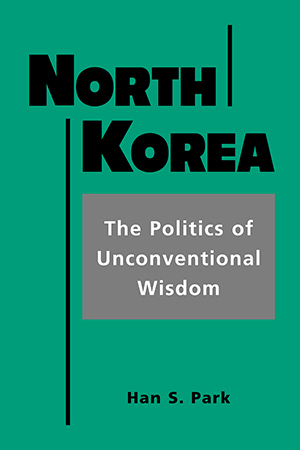
- 2002/195 pages
North Korea:
The Politics of Unconventional Wisdom
Hardcover: $75.00
ISBN: 978-1-58826-050-5
Paperback: $75.00
ISBN: 978-1-58826-403-9
Despite isolation, an impoverished economy, mass starvation, and the challenge of leadership succession, North Korea's socialist state continues to survive.
Han Park explores the reasons for this resilience, concentrating on the implications of mass beliefs and political ideology for the country's political life. Park begins with an examination of Juche, or self-reliance, the ideology that so pervasively penetrates the entire spectrum of North Korean society and guides political behavior at all levels. Drawing on personal interviews and on-site observations, he finds a belief system that is comparable to a theology, and a society that exhibits many characteristics of a religious community. In this context, he discusses regime legitimacy, the economy, foreign and defense policy, and the politics of reunification, as well as the regime's reaction to the market forces of globalization.
Han Park explores the reasons for this resilience, concentrating on the implications of mass beliefs and political ideology for the country's political life. Park begins with an examination of Juche, or self-reliance, the ideology that so pervasively penetrates the entire spectrum of North Korean society and guides political behavior at all levels. Drawing on personal interviews and on-site observations, he finds a belief system that is comparable to a theology, and a society that exhibits many characteristics of a religious community. In this context, he discusses regime legitimacy, the economy, foreign and defense policy, and the politics of reunification, as well as the regime's reaction to the market forces of globalization.
It is Juche, Park concludes, that is the locus of North Korea's political culture, central to understanding its politics and policies. Though far from proposing a single-factor explanation of the North Korean system, he demonstrates convincingly that an understanding of the country's doctrine of self-reliance is essential to an understanding of the country itself.







